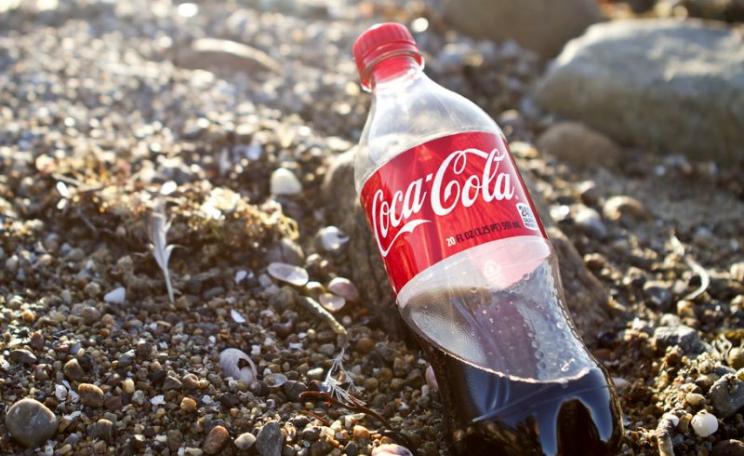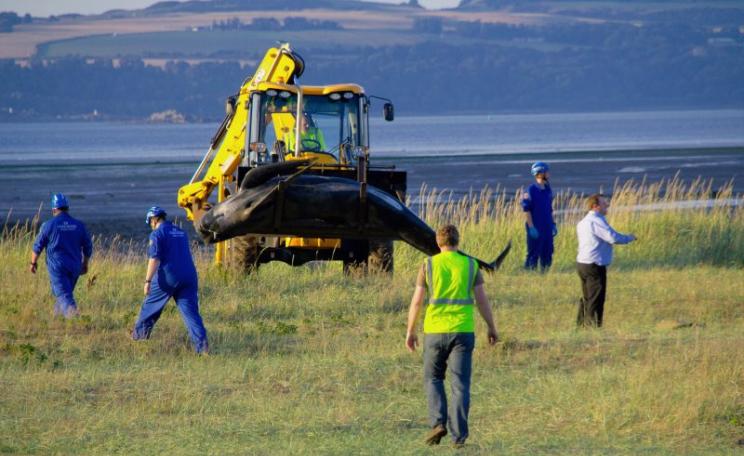Nurdles float and look a lot like fish eggs, which are a major food source for many species, so they're eaten by many marine creatures. They cause direct harm to animals, and could even pass along the food chain - potentially affecting the food we eat.
As today's plastic bag charge comes into force, uncounted millions of 'nurdles', tiny plastic pellets under a millimetre across, have washed up along Cornwall's scenic coastline.
It's a timely reminder if there ever was one that the 5p plastic bag charge, which comes into force in England today, is barely scratching the surface of our plastic waste problem.
Tens of thousands of the mainly grey and black pellets have been found on beaches on both coasts around Falmouth, Newquay, Mevagissey and Whitsand Bay.
The nurdles are the raw material used to make virtually all our plastic items. Their origin is unknown however they may well have been discharged from a damaged or overboard shipping container.
A 150 tonne nurdle spill in waters near Hong Kong in 2012 - which released around 15 billion of the plastic pellets - was traced to plastics company Sinotec which set aside HK$10m ($1.3m) to clean up, while disclaiming liability.
Thousands of the nurdles were found in the guts of fish in local fish farms after six containers were washed off a ship in Typhoon Vincente.
Small enough to be mistaken for tiny pebbles, the pellets are an often overlooked but serious aspect of the marine plastic problem blighting beaches from Cornwall to Vanuatu.
As they are so tiny (an eggcup holds over 500) it is next to impossible to clean them up from beaches. They can disperse over vast distances and are found on beaches worldwide, from the UK to the remotest Pacific islands.
Over 400,000 on a 25m stretch of beach
Last year, when Rame Peninsula Beach Care (RPBC) attempted to remove, count and categorise every piece of plastic in a 25-metre-wide Cornish cove, the final count included 401,230 nurdles.
Claire Wallerstein, of RPBC, based in South East Cornwall, said they pose a serious risk to marine wildlife: "Nurdles float and look a lot like fish eggs, which are a major food source for many species, so they're actually eaten by many marine creatures."
Nurdles are doubly harmful, she added, as they have been shown to attract toxins in high concentrations from the surrounding seawater. Many dangerous but environmentally-persistent chemicals, such as DDT and PCBs, which were banned decades ago, readily attach themselves to the surface of the nurdles.
University of Exeter researcher Dr Matthew Cole, an expert on microplastic consumption by plankton, said: "Nurdles are one of the most common types of plastic litter washing up on our shorelines. As with other small items of plastic, these nurdles can be mistakenly eaten by wildlife.
"Consumption of plastic can cause direct harm to animals, and there is a serious concern that such plastics could pass along the food chain - potentially affecting the food we ourselves eat too."
Nurdles float and look a lot like fish eggs, which are a major food source for many species, so they're eaten by many marine creatures. They cause direct harm to animals, and could even pass along the food chain - potentially affecting the food we eat.
How do nurdles end up on our beaches?
The tiny size of nurdles means they can easily be lost during production, manufacturing and transportation by either road, rail or sea. Unfortunately, little information is available as to where spills are taking place.
A growing number of UK plastics companies are signing up to a voluntary industry code of conduct (Operation Clean Sweep), under which they pledge to put in place simple and cost-effective measures, such as mesh covers to stop pellets being lost down drains. However, only a minority of firms have so far joined.
Sarah Archer from Fidra, a Scottish-based environmental charity that runs The Great Nurdle Hunt, said: "It's good to see some companies taking steps to prevent nurdle loss.
"However, with global plastic production increasing dramatically - up from five million tonnes per year in the 1950s to around 300 million tonnes per year now - the number of pellets produced and transported is growing fast. Spills of fresh nurdles, like the recent one in Cornwall, show this problem is far from being solved.
"There is much more that can be done to address this issue, and we would really like to see greater engagement with the shipping and haulage industries, as well as the plastics industry. Together, we are positive that real progress can be made."
Marine plastic in all forms poses a major threat to life in the oceans, affecting everything from plankton and coral up to whales. The UN says that at least 100,000 whales, dolphins, seals and turtles are killed each year, either by mistakenly eating plastic or getting entangled in it. An estimated 90% of all seabirds now have plastic in their digestive tract.
In the UK, every single fulmar (a type of seabird) from the English Channel area now autopsied is found to have plastic in its gut, while over 250 Cornish seals have been observed with plastic entangled around their necks.
More information
- Rame Peninsula Beach Care keeps beaches clean of plastic and other litter.
- The Great Nurdle Hunt project aims to end further industrial plastic pellet or 'nurdle' pollution into Scottish seas.
- Pellet Watch.







